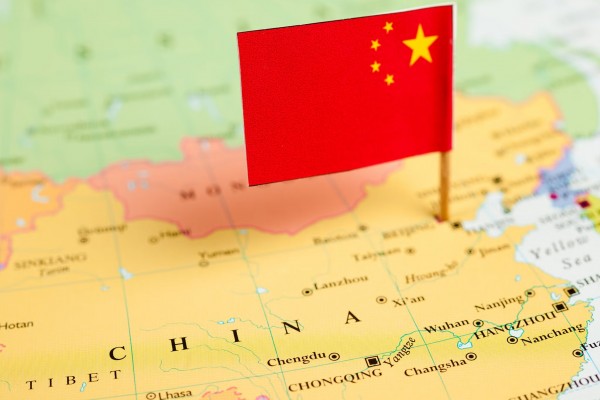Review №40 on Chinese Antitrust News from BRICS Antimonopoly Centre Experts
- Antitrust missed 2022 key economic targets
- Didi leaves the American stock exchange
- SEC: we are not against foreign IPOs
- Beijing Antitrust Compliance Guidelines
- Collecting opinions on methods of calculating illegal profits
- Protecting workers on platforms in Zhejiang province
- Strengthening the legal framework for competition in the digital economy
- Limiting commissions on online transport platforms
- WeChat ensures openness
- China-Europe Competition Week
- Cooperation between Tencent and Apple Music
- Alibaba reorganizes trade directions
- 106 apps removed from stores· Academic monopoly
Antitrust missed 2022 key economic targets
The campaign to tighten antitrust regulation in China was launched at the end of 2020 at the annual meeting of the Politburo of the Central Committee of the CPC to analyze economic work - among the main goals for next year, Chinese President Xi Jinping then called for strengthening antitrust measures and preventing the indiscriminate expansion of capital. This year, the antimonopoly sector was no longer mentioned: the main emphasis was placed on technological self-sufficiency and innovative development. The adoption of new technologies and improved resilience of supply chains were also noted.
As part of a course to increase technological potential, at the end of November, a plan for the 14th five-year plan for software and information technology services was published: by 2025, China intends to develop more than 1 million industrial applications and increase the competitiveness of software in the financial sector, construction and other key industries.
Didi leaves the American stock exchange
On December 3rd, Didi announced on its official Weibo account that it was leaving the New York Stock Exchange and launching preparations for listing on the Hong Kong Stock Exchange. In July, the PRC Cyberspace Administration announced that it was beginning to review the application for risks related to the security of government data, the protection of national security, and the safeguarding of public interests. The DiDi app has suspended new user registrations and has been removed from app store catalogues in order to facilitate verification and prevent risk escalation; during the verification period.
Source: The paper
SEC: we are not against foreign IPOs
Against the background of DiDi's departure from the New York Stock Exchange, representatives of the China Securities Commission answered questions from reporters. According to them, the Commission has always been open and respected the right of enterprises to choose an exchange for an IPO freely.
"Messages that we prohibit VIE-structures from listing abroad and encourage them to leave the American stock exchange are fundamentally misinterpretation," the department said. "Recently, China's regulators have introduced a series of policy measures to stimulate the development of the platform economy. Their goal is to regulate anti-competitive practices, protect the rights of small and medium-sized enterprises, the security of data and personal information, eliminate the regulatory vacuum in the financial sector, and prevent the indiscriminate expansion of capital. "The Commission is also trying to take steps to counter new challenges - they are by no means pressure on a specific sector or a specific company and do not imply a mandatory connection with foreign IPOs.
Source: CSRC
Beijing Antitrust Compliance Guidelines
The Joint Research Group of the Beijing Research Center for Market Development and Regulation and the Center for Competition Law Studies of the China University of Politics and Law has published the "Antitrust Compliance Guide for the Beijing City Platform Economy." The Guide provides explanations on the content of anticompetitive practices, their manifestations and possible risks, and gives examples: 12 real cases from the practice of China, the United States and the European Union and 8 "simulated" ones. For example, the authors warn that, even without a dominant position, a platform that prohibits suppliers of goods and services from cooperating with its competitors or restricts them using data, algorithms or technology could violate antitrust laws if its actions negatively affect the state of competition. In total, the document identifies 15 types of risks and provides recommendations for organizing corporate compliance management.
Source: People.cn
Collecting opinions on methods of calculating illegal profits
On the 6th of December, SAMR published a draft, "Methods for Determining Illegally Gained Profits in Market Regulation Cases where Administrative Penalties are Applied." All cash, bank receipts and other equivalent funds received as a result of illegal activities are considered illegal profit. The necessary expenses directly spent on production and economic activities are deducted from the total amount when calculating. The "Methods" list the types of such costs and specify the cases when they are not considered necessary. If any amounts have already been reimbursed, the market authority will not confiscate them but will still take them into account in the calculation. If it is difficult to calculate illegal profit, it is taken into account when calculating the amount of the fine.
Public consultations will last until the 5th of January.
Source: SAMR
Protecting workers on platforms in Zhejiang province
New measures have been introduced in Zhejiang province to protect workers: online platforms have been ordered to provide a 20-minute rest for couriers who have worked more than 4 hours in a row. In addition, it is necessary to lengthen the delivery time and limit the volume of orders in special circumstances - for example, in bad weather - in order to avoid illness or accidents.
Protective measures mean ensuring the physical and psychological health of workers who rely on digital platforms: deliveries, drivers, etc. Under the supervision of government departments and industrial organizations, the province has demanded to develop or revise algorithms regarding earnings, working hours, bonuses and fines for workers, based on proposals from trade unions and interested representatives.
Source: Global Times
Strengthening the legal framework for competition in the digital economy
One of China's largest state-owned media outlets, the daily Guangming Daily, has published another article on the value of fair competition. In it, anti-competitive practices in the platform economy (predatory takeovers, unjustified blocking of links, coercion to refuse cooperation with competitors, discrimination using big data, etc.) are called a classic example of a game with a "zero" or even "negative" sum. In doing so, legislatures, judiciaries, and executives use existing institutions to "sweep up the dust of competitive chaos," "clear congestion, and [remove] pain points." For more efficient work, the authors propose to improve the existing legal framework - to make competition law more systemic and focused.
Source: SAMR
Limiting commissions on online transport platforms
The Ministry of Transport, together with the responsible departments, published "Opinions on strengthening the work to guarantee the rights of persons engaged in new forms of business in the field of transport." From now on, government agencies will urge online taxi services to inform drivers and passengers about the rules for calculating prices and distributing profits: after each trip, the driver will display the client's payment and the amount earned, as well as the percentage of the platform's commission, exercising his right to information and supervision.
Platforms will also be asked to consult with trade unions and industry organizations to establish a reasonable maximum commission size and publish it on their mobile apps and media.
Source: SAMR
WeChat ensures openness
WeChat has published updated rules for handling external links. Developers will provide direct click-throughs in face-to-face conversations and will also test this feature in group chats led by regulators. Previously, the application had already activated the function of viewing links in personal correspondence, but before viewing the desired content, users would still open the redirect page.
WeChat representatives said they continue to strengthen the interconnectedness of Internet platforms themselves and actively assist others in this to ensure the technical ability to use WeChat services on third-party platforms.
SAMR Competition Policy Coordination Division and the EU Competition Directorate General jointly hosted a series of video seminars in the framework of the 22nd China-Europe Competition Week. Antitrust law enforcement experts from both sides exchanged views on issues such as competition review system, international support, consideration of economic concentration transactions, antitrust legislation for digital platforms and its implementation. Also, they discussed the progress in amending the PRC Antimonopoly Law.
Source: SAMR
Cooperation between Tencent and Apple Music
In November, Tencent Music Entertainment announced a partnership with Apple Music - the Chinese resource that will distribute its music content to the global market through its cloud service. This means that the catalogue of Chinese labels and artists available on the TME platform will also become available to Apple Music subscribers. SAMR previously ordered Tencent to waive all exclusive rights to the music, the first time that mandatory measures have been taken to restore competition in the market in an uncoordinated economic concentration deal since the PRC's Antimonopoly Law was passed in 2008.
Source: Baidu
Alibaba reorganizes trade directions
The company has formed two separate divisions for digital trade - one will be responsible for all business inside China (Taobao, TMaill, 1688, etc.), and the other - for all foreign sales (Aliexpress, ICBU, Lazada). In addition, a new CFO, Toby Xu, will take over in March. In a letter to employees, CEO Daniel Zhang explained that structural reorganization is an attempt to increase Alibaba's organizational agility. Inside the company, the reshuffle has been called "fixing the roof in clear weather" (before it rains) - this year, a wave of regulation has already led to major corporate changes, and the corporation is obviously trying to prevent possible risks ahead of time.
As part of a campaign to eliminate personal data and cybersecurity laws violations, the Ministry of Industry and Informatization announced the removal of 106 apps from store catalogues. These applications requested excessive privileges, collected data unnecessarily, tricked users into downloading, and did not fix violations even after warning. Developers of some of the applications also received administrative fines from local communications departments. The list also includes a large service, Douban - a social network for free discussion of films, literature and culture with an audience of 10 million monthly active users.
Source: Baidu
Academic monopoly
Professor Wen Zhonglin at the Institute of Psychology at South China Normal University has accused China's largest academic database CNKI (China National Knowledge Infrastructure), of being monopolized. "The state should regulate academic databases in the same way it regulates the water and electricity industries," he said. Through regulatory mechanisms and procedures, Wen Zhonglin emphasized that it is necessary to establish a reasonable price for the platform's services to ensure its operation and development and appropriately limit profits, thereby lowering user costs. Professor Wen is one of the most-cited authors in the CNKI system. Earlier, 89-year-old professor of the Zhongnan University of Economics and Law Zhao Dexin sued CNKI 700 thousand yuan - the resource posted 160 of his articles without permission and left the author without a fee.
Source: inews.qq




